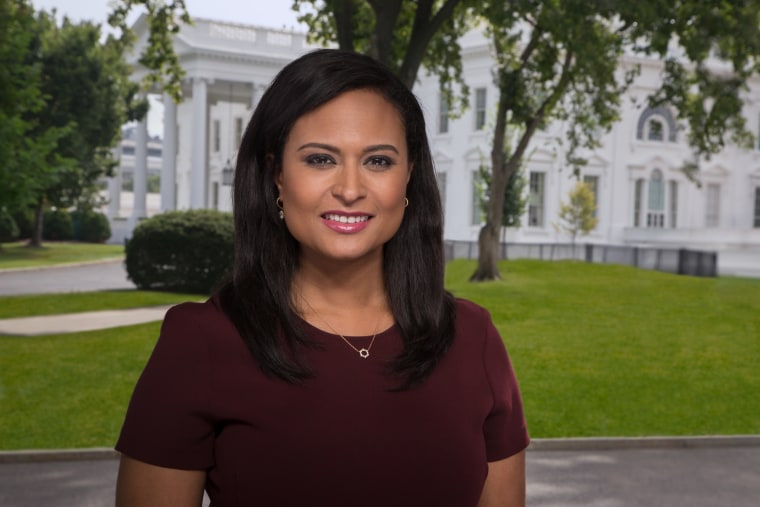NBC News’ Kristen Welker is unstoppable. And the past year has proved it.
Welker was overwhelmingly praised for her masterful command as moderator during the final presidential debate in October, keeping Joe Biden and Donald Trump in line and controlling the conversation—something other moderators trying to rein in Trump have long struggled with.
She also covered the country’s most pressing stories during a global pandemic, in addition to serving as co-anchor of "Weekend TODAY." And in January, she was tapped by the network as chief White House correspondent.
Because of all Welker, 44, has accomplished both on and off camera, one might think she's bursting with confidence and never suffers from anxiety or doubt ― but that’s not always the case.
“What was fascinating when I stepped off of that debate stage as I was headed home that night, I thought, ‘well, I'll never be nervous for anything else again.’ But the reality is that's not the case,” she told Know Your Value founder and “Morning Joe” co-host Mika Brzezinski.
“Every big moment, I still have a few jitters. But that's one of the things that makes you human. It's one of the things that keeps you on your toes. It keeps you sharp. And it's a reminder to myself to never get lazy when it comes to the preparation, because that's what gave me the confidence out on that debate stage.”
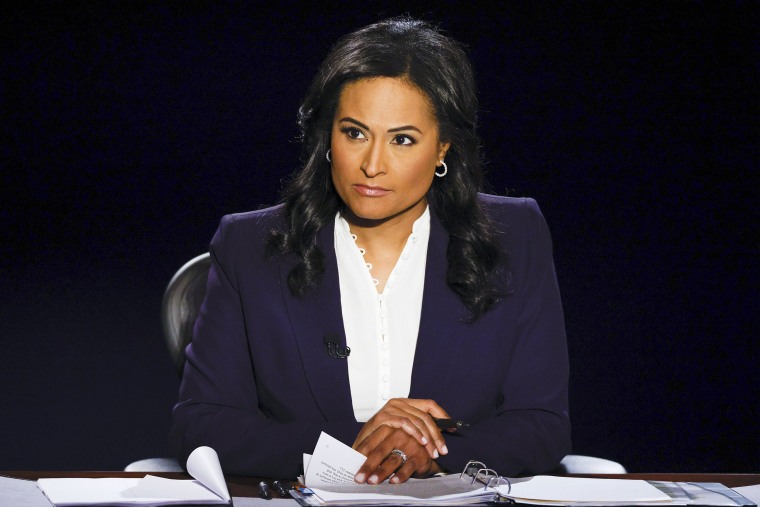
Welker chatted with Brzezinski about the debate, her mom’s influence, finding confidence, her future plans, her best advice for young women and more.
Below is their conversation, which has been edited for brevity and clarity:
Mika Brzezinski: What was it like to moderate that final presidential debate in front of 60 million people and having your mom's knowledge of your value seen by everybody?
Kristen Welker: It was a surreal moment, and I approached it as I approach every live shot in every report that I do ― with an immense amount of preparation and researching.
I actually reached out to American voters: Democrats, Republicans and Independents, just to get a sense of what they wanted discussed during the debate. And what I really wanted was a good conversation from both of these candidates, for them to be able to talk about their views. But of course, it was a lot of pressure … I had to try to block that out. I did that by envisioning that moment every day, multiple times a day, and planning out what I was going to do, how I was going to approach it.
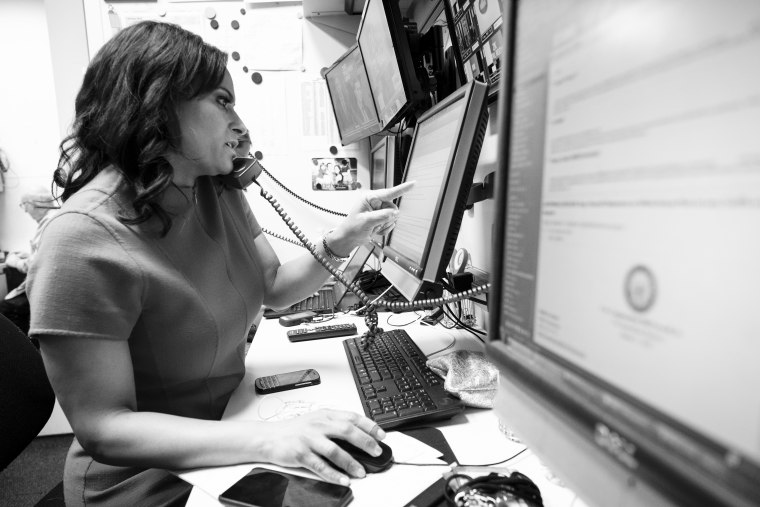
There's about two minutes before the candidates walk out. I literally planned out those two minutes. My plan was to sit down, get my binder organized, to get my first question in front of me, have a couple of sips of water and take a couple of deep breaths. And that really allowed me to center myself and to remind myself of my value and why I was there and the importance of having someone there just to moderate what I was hoping would be a good conversation.
I was also trying to envision literally every single scenario. I mean, this is why preparation matters because during our mock session, we went through every possible scenario you can think of. And so when I sat down at that debate stage, I really did have a plan including for what if nothing much happens beyond the candidates answering my questions.
Brzezinski: It was probably the best debate moderating performance I've ever seen, especially because it met the moment…You kept the candidates on, and you were quick and tight and measured and purposeful, and that does come with planning. Watching, I was like “that's what Kristen can do.”
Welker: My mom [helped me with that growing up]. She is someone who is purposeful and was a very strict disciplinary. And so that was certainly with me on that stage as well.
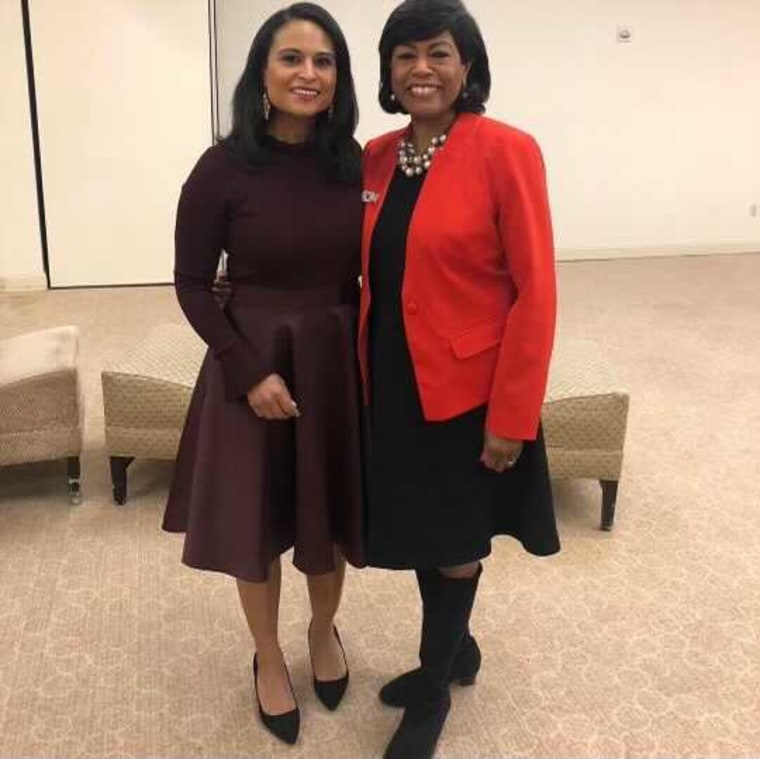
Also, I think part of what helped me to feel prepared for that moment was the fact that I had this incredible team working with me. And a lot of them were very strong women who help lead our news organization, [president of MSNBC] Rashida Jones, [senior vice president of NBC News and TODAY] Libby Leist, [senior White House producer] Stacey Klein, [deputy bureau chief for NBC News Washington] Chloe Arensberg and more.
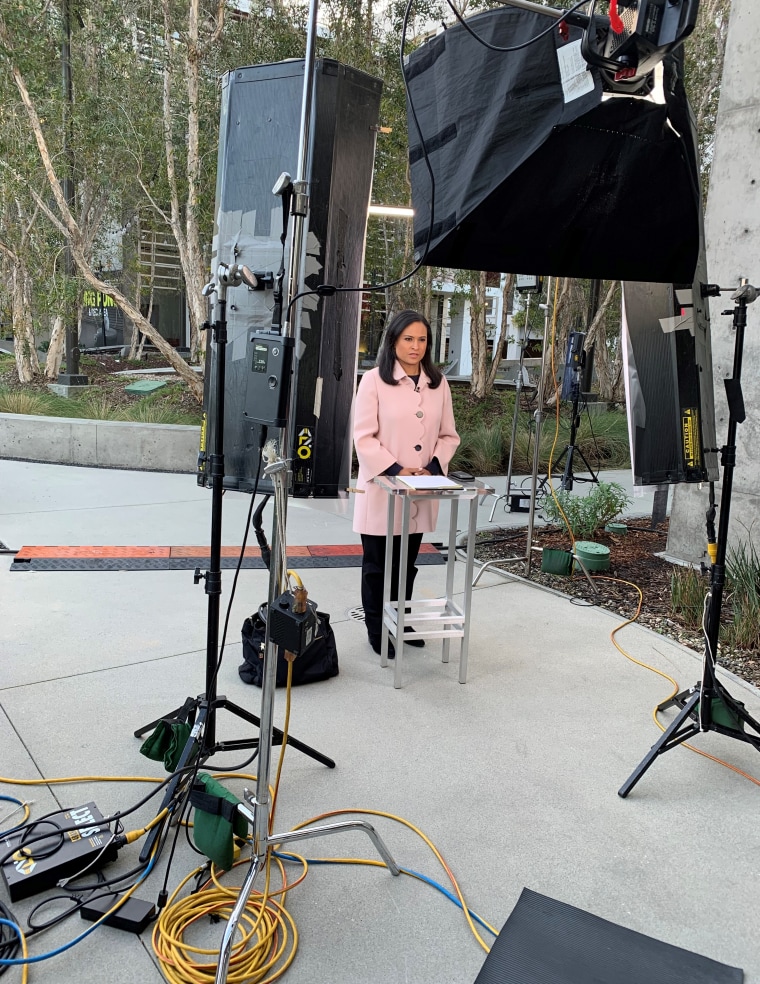
Brzezinski: Preparation equals confidence. That's a great Know your Value philosophy. Now tell me, when was it that you became inspired to become a journalist? Because I know everyone talks about your career track. But growing up, was there an experience or when did you know you wanted to be a reporter?
Welker: When I was a kid, I always wanted to be a journalist. And I had a best friend when I was really young, and she wanted to be a veterinarian. So we used to write news articles about our stuffed animals who we would do mock operations on.
But I think the moment that I really knew I wanted to be a journalist goes back to my mom when she ran for city council in Philadelphia. And so politics and government is just kind of in my blood. But what I realized in that process is there is a difference between people, journalists who are asking real questions, holding elected officials to account and who are helping to promote good government. And I wanted to be a part of that process.
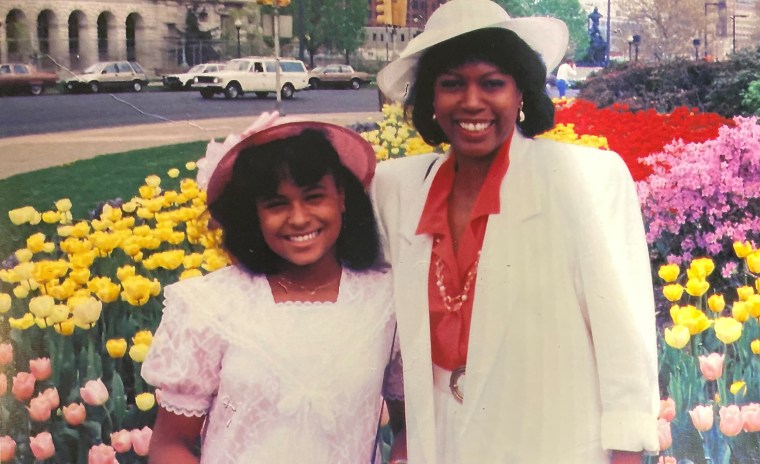
Brzezinski: What does the future look like for you?
Welker: My friend Peter Alexander and I were recently named chief White House correspondents for NBC News. I just want to thrive in this role. It's a new role, and we are hitting the ground running. Of course, we're coming off of four years [of covering Trump], which was 24/7. And this is a new administration, so it's 24/7 as well. I just want to be able to look back on this period and say ‘We did it right. We got it.’”
Brzezinski: What’s your advice for younger women who are coming into this business?
Welker: Believe in yourself. Know that, yes, there are going to be days when people doubt you. And maybe even when you doubt yourself. But it's about having passion and believing in that passion and moving beyond those moments and doing the hard work. And ultimately, if you set your mind to it, you could do just about anything.
